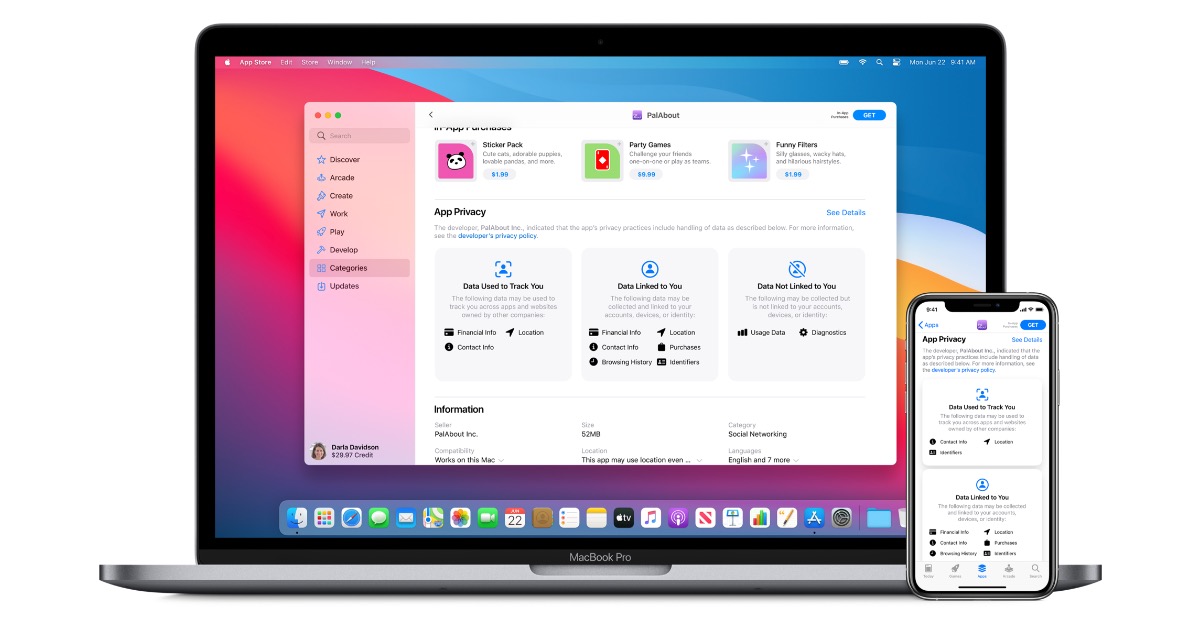Apple has posted additional guidance for App Store privacy labels to help developers understand the kind of information that they need to submit for app updates or new app submissions. The additional guidance covers more data types including email, text messages, and gameplay content, along with data collected in web views and other documents and file types.
App Store privacy labels launched in December 2020, and since then any app update that is submitted to the App Store has to feature privacy labels. These labels help users understand what data does the app access. This includes data used to track the user, data linked to the user, and even data that is not linked to the user but is still captured by the app.

Additional guidance for App Store privacy labels covers email, text messages, and gameplay content
Ever since App Store privacy labels were announced, there has been a lot of drama around them. Google stopped updating its iOS apps for months to delay its inevitable privacy label updates in the App Store. WhatsApp also came out swinging and called out Apple for not showing privacy labels for built-in iOS apps like Messages. Apple quickly remedied the situation by posting privacy labels on its website, as Messages it not available in the App Store. Of course, Facebook is not happy at all that it is forced to tell users how it tracks them
Apple posted a new update on its Developer portal’s news section where it explains what the additional guidance covers:
Additional details have been published on completing your App Store privacy labels, including more information about data types, such as email or text messages, and gameplay content. You’ll also find more information about data collected in web views and data that may be entered by users within documents or other file types.
The new guidance should make it easier for developers to understand and comply with the type of information they should submit with their apps.
Craig Federighi, Apple’s software chief, said in an interview that the company wants competitors (hint: Google) to copy their App Store privacy labels. However, many apps were found to be posting inaccurate privacy labels in the App Store without any way for users to report them to Apple. Apple said that it conducts routine checks and takes action against such apps, but the sheer number of apps available in the App Store makes it difficult to ensure that no app gets to break the rules.
Recently, a U.S. House committee asked Apple to improve the accuracy of App Store privacy labels, and also share details of its App Privacy system because “A privacy label is no protection if it is false,”.
1 comment
Comments are closed.